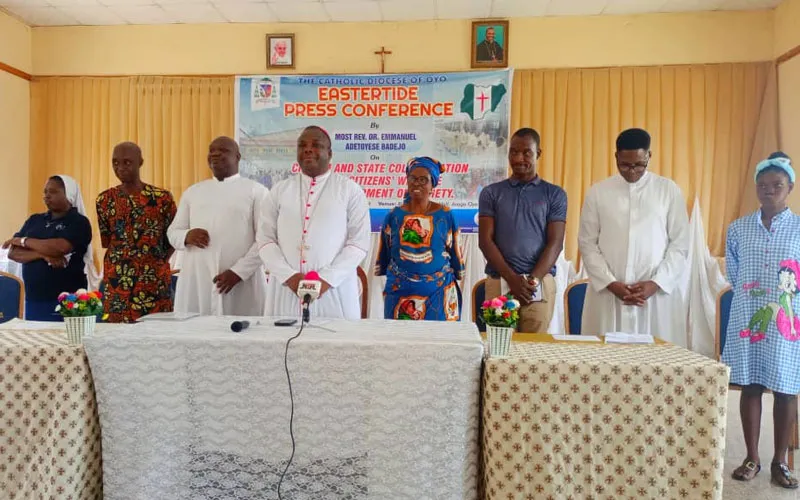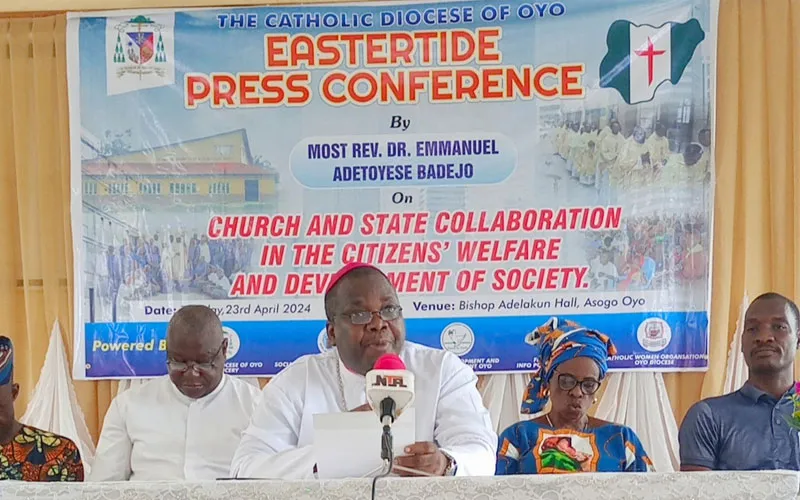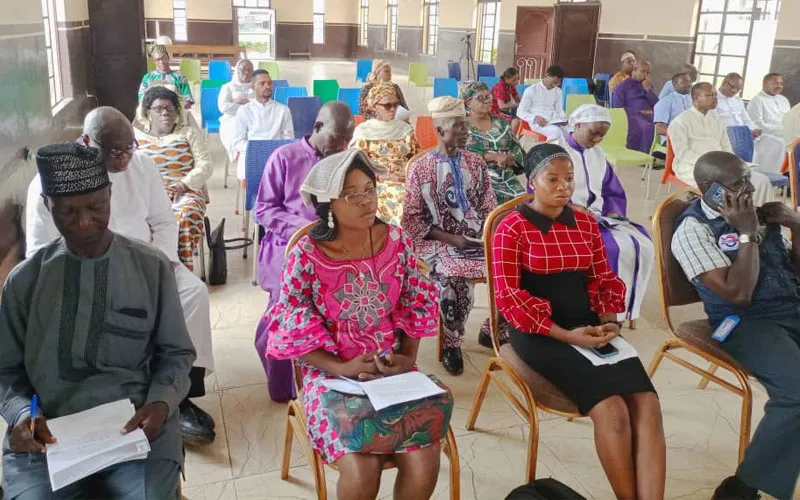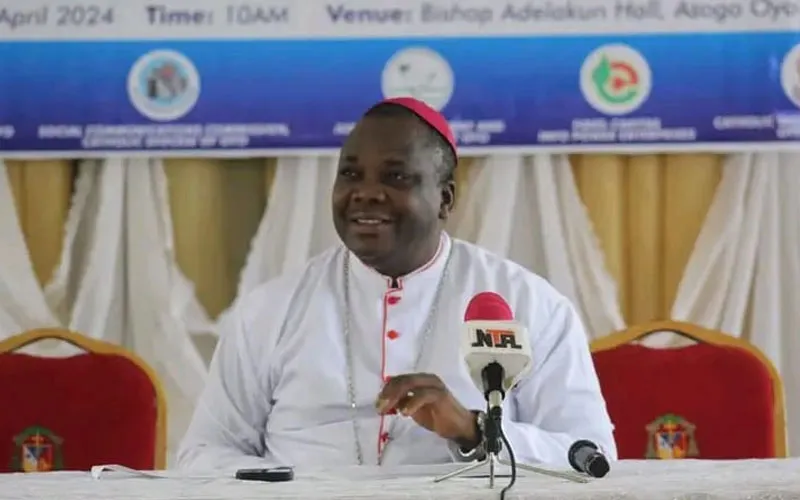 Credit: Catholic Diocese of Oyo
Credit: Catholic Diocese of Oyo
He advocated for research- and evidence-based strategy, saying, “The government needs to better monitor the effectiveness of its youth intervention programs, collect data and conduct evaluation to inform future strategies and actions.”
The strategy would go a long way in motivating families “to create bonds including parenting classes, family counselling sessions and pooling of social services to promote a nurturing environment for the youths,” Bishop Badejo said, adding, “The media have a critical role to play in this regard.”
The Nigerian Catholic Church leader, who started his Episcopal Ministry in October 2007 as Coadjutor Bishop of Oyo Diocese also weighed in on the effects of social media, including on young people, and advocated for “ethical guidance”.
 Credit: Catholic Diocese of Oyo
Credit: Catholic Diocese of Oyo
(Story continues below)
He described social media as “One of the blessings of technology in our time” that goes “beyond the limits of the print and broadcast media.”
The digital space and the related technology, Bishop Badejo noted, “has taken the management of information to a super-highway where what is sent and what is received have a wider audience and everyone may have access to it.”
While “the Church considers these new developments, a blessing from God,” Bishop Badejo cautioned against the manipulation of the digital culture.
 Credit: Catholic Diocese of Oyo
Credit: Catholic Diocese of Oyo
He said, “We must point out that the democratic mode of the social media and digital space, so to say, by which everyone can manipulate and post just about anything, can be exploited in a frightening manner by some, for ulterior and damaging motives.”
Such manipulation, the Catholic Church leader went on to say, “has already accounted for danger, pain and loss in the lives of many people.”
“We therefore call on all who engage with the social media to promote wholesome values like sanctity of human life, respect for the rule of law, the dignity of labor, the dignity of women, care for the elderly and solidarity with the weak,” he said.
 Credit: Catholic Diocese of Oyo
Credit: Catholic Diocese of Oyo
“If we take the opportunity, the digital space can be an opportune place for moral and social regeneration aimed at the common good,” Bishop Badejo said, and continued, “We enjoin all with access to social media to avoid noxious, damaging and injurious activities and language and be more constructive in order to stimulate others towards ennobling and appropriate actions.”
He emphasized, “The digital space and its gadgets must never be allowed to become toxic to us. It is important to watch out for this, so that we do not lose touch with one another or with our humanity.”
 Credit: Catholic Diocese of Oyo
Credit: Catholic Diocese of Oyo
The President of CEPACS challenged stakeholders to offer “ethical guidance” to foster responsible engagement with social media and the various peripherals.
“The government, faith-based organizations and other educational institutions including the media need not wait for doomsday before exercising their responsibility to offer ethical guidance especially to the youth in the educational curriculum on the new digital space and Artificial Intelligence,” he said during his address at the April 23 Eastertide press conference.
ACI Africa was founded in 2019. We provide free, up-to-the-minute news affecting the Catholic Church in Africa, giving particular emphasis to the words of the Holy Father and happenings of the Holy See, to any person with access to the internet. ACI Africa is proud to offer free access to its news items to Catholic dioceses, parishes, and websites, in order to increase awareness of the activities of the universal Church and to foster a sense of Catholic thought and culture in the life of every Catholic.
 Credit: Catholic Diocese of Oyo
Credit: Catholic Diocese of Oyo



 Credit: Catholic Diocese of Oyo
Credit: Catholic Diocese of Oyo
 Credit: Catholic Diocese of Oyo
Credit: Catholic Diocese of Oyo Credit: Catholic Diocese of Oyo
Credit: Catholic Diocese of Oyo Credit: Catholic Diocese of Oyo
Credit: Catholic Diocese of Oyo Credit: Catholic Diocese of Oyo
Credit: Catholic Diocese of Oyo Credit: Catholic Diocese of Oyo
Credit: Catholic Diocese of Oyo Credit: Catholic Diocese of Oyo
Credit: Catholic Diocese of Oyo


